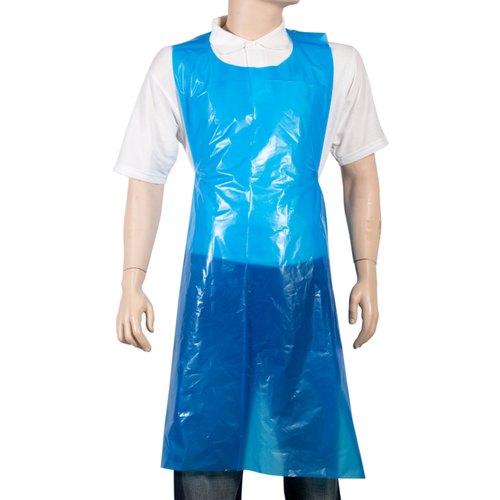How do plastic aprons compare to other types of aprons in terms of durability

Comparing the Durability of Plastic Aprons to Other Types
Plastic aprons, commonly made from materials like polyethylene (PE), polyvinyl chloride (PVC), or thermoplastic polyurethane (TPU), offer varying degrees of durability compared to other apron types such as cotton, nylon, or leather.
Disposable PE Plastic Aprons:
-
Designed for single-use, these aprons are lightweight and waterproof, making them ideal for short-term protection against spills, especially in the food industry.
-
Their main advantage is hygiene and cost-effectiveness, but they have limited durability and are prone to tearing under stress or heavy use.
-
They are not suitable for tasks requiring robust protection or repeated use.
PVC Plastic Aprons:
-
PVC aprons are much more durable than disposable PE aprons. They offer excellent resistance to chemicals, oils, and acids, making them suitable for industrial and cleaning applications.
-
These aprons are reusable, sturdy, and can withstand heavy-duty tasks, but they can be stiff and less flexible than other materials.
TPU Plastic Aprons:
-
TPU aprons strike a balance between flexibility and strength. They are highly durable, resistant to a range of fluids, and comfortable for long-term wear.
-
Their robustness makes them suitable for demanding environments like healthcare, where both protection and comfort are critical.
Other Apron Materials:
| Apron Type | Durability | Typical Use Cases | Notes |
|---|---|---|---|
| Cotton | Low to moderate | Light kitchen work, general use | Absorbs liquids, not waterproof |
| Nylon/Rubber | Moderate to high | Industrial, chemical handling | Heavier, more protective than cotton |
| Leather | High | Welding, heat exposure, heavy-duty industrial work | Very durable, long-lasting |
| Reusable Vinyl/Polyester | High | Food processing, healthcare, manufacturing | Withstands laundering and harsh use |
Summary:
-
Disposable plastic aprons (PE) are less durable than reusable options and are best for one-time, low-stress tasks.
-
PVC and TPU plastic aprons are significantly more durable, withstanding harsh chemicals and repeated use.
-
Compared to materials like cotton, nylon, or leather, high-quality plastic aprons (PVC/TPU) offer strong durability, especially in wet or chemical environments, but leather remains unmatched for heat and physical protection.
-
Reusable aprons made from vinyl, polyester, or leather outperform disposable plastic aprons in terms of long-term durability and cost-effectiveness.
Choosing the right apron depends on the specific demands of your environment—plastic aprons excel in waterproofing and chemical resistance, while other materials may be preferable for heat, abrasion, or repeated laundering.
Conclusion
In conclusion, plastic aprons offer a unique combination of benefits that set them apart from other types of aprons, especially when it comes to durability in specific environments. While disposable polyethylene plastic aprons are ideal for single-use applications due to their lightweight and waterproof nature, they lack the durability required for heavy-duty or long-term use. On the other hand, reusable plastic aprons made from materials like PVC and TPU provide excellent durability, chemical resistance, and flexibility, making them suitable for demanding industries such as healthcare, food processing, and manufacturing.
Compared to traditional materials like cotton, nylon, or leather, plastic aprons excel in environments where liquid resistance and hygiene are critical. Although leather aprons offer superior protection against heat and physical hazards, plastic aprons are more practical for wet or chemical-prone settings. Their ease of cleaning and ability to maintain sterility make them indispensable in many professional fields.
For businesses seeking reliable and high-quality plastic aprons, partnering with reputable Plastic Apron Manufacturers in India, Plastic Apron Suppliers in India, and Plastic Apron Exporters in India ensures access to durable, compliant, and cost-effective products tailored to diverse industrial needs. Ultimately, understanding the durability differences among apron types helps organizations make informed choices that enhance safety, comfort, and operational efficiency.

